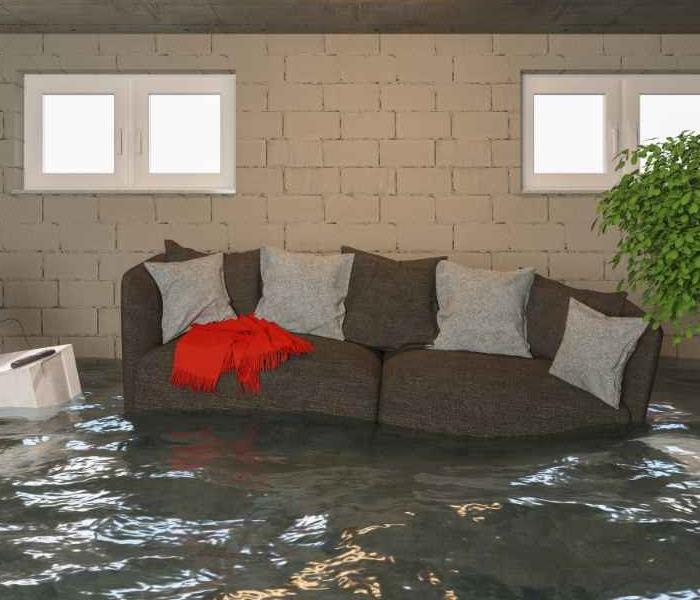How to Protect Your Home from Basement Flooding During Winter
11/8/2024 (Permalink)
Winter brings more than just cold weather—it also introduces the risk of basement flooding. Between melting snow, heavy rain, and freezing temperatures, homes are vulnerable to water damage if preventive measures aren’t taken. Here are some essential steps you can follow to protect your basement from flooding this winter. If water damage does occur, trust SERVPRO of East Meadow/Westbury for expert water damage restoration services.
1. Clean Your Gutters and Downspouts
Proper drainage is key to preventing basement flooding. Gutters and downspouts are your home’s first line of defense in managing rain and melted snow. Ensure your gutters are clear of leaves and other debris that can block water flow. This simple task prevents water from pooling around your foundation, which can easily lead to leaks and basement flooding.
Downspouts should be positioned to direct water at least five feet away from your home’s foundation. If necessary, consider adding downspout extensions to ensure water is effectively routed away from your basement.
2. Seal Foundation Cracks
Water can seep through even the tiniest cracks in your foundation walls or floors, gradually worsening and leading to extensive damage. Before winter sets in, inspect your basement for any cracks or gaps in the foundation. If you find any, seal them with waterproof caulking or use a waterproofing sealant to block moisture from getting in.
Larger cracks may require professional attention, but for minor gaps, DIY solutions like hydraulic cement or epoxy fillers can provide an effective seal. Regular inspection and maintenance of your foundation are essential for keeping water out.
3. Install a Sump Pump
A sump pump is one of the most effective tools for protecting your basement from flooding. It automatically detects rising water levels and pumps water away from your home, preventing flooding before it starts. If you don’t already have a sump pump, consider installing one, especially if your basement is prone to water issues.
For homes with existing sump pumps, regular maintenance is crucial. Check your sump pump at the start of the winter season to ensure it’s working correctly. You may also want to invest in a battery backup system in case a power outage occurs during a storm.
4. Improve Your Yard’s Grading
If your yard is sloped toward your home, rainwater and melted snow will naturally flow toward your foundation, increasing the likelihood of basement flooding. To prevent this, make sure your yard is graded so that water drains away from your home. Regrading may involve adding soil around your home’s perimeter to create a gentle slope.
If regrading isn’t an option, consider installing French drains or other drainage systems to direct water away from your foundation and prevent it from seeping into your basement.
5. Maintain Your Sewer System
During heavy winter rains, overwhelmed sewer systems can cause water backups, which lead to basement flooding. Regular sewer maintenance can help prevent blockages and reduce the risk of a backup. Consider having a professional plumber inspect your sewer lines and clean them if necessary, especially if you’ve experienced issues in the past.
In homes with older sewer systems, installing a backwater valve may be a wise investment. This device prevents sewage from flowing back into your home in the event of a backup.
Trust SERVPRO of East Meadow/Westbury for Water Damage Restoration
Even with the best preventive measures, winter flooding can still happen. If your basement does flood, it’s crucial to act fast to minimize damage. SERVPRO of East Meadow/Westbury offers professional water damage restoration services to help remove water, dry your basement, and restore affected areas. Whether it’s due to heavy rain, melting snow, or a burst pipe, we have the expertise and equipment to handle any situation. Don’t wait—contact us to get your home back to normal.




 24/7 Emergency Service
24/7 Emergency Service
